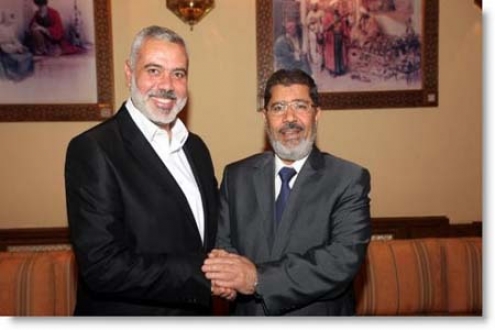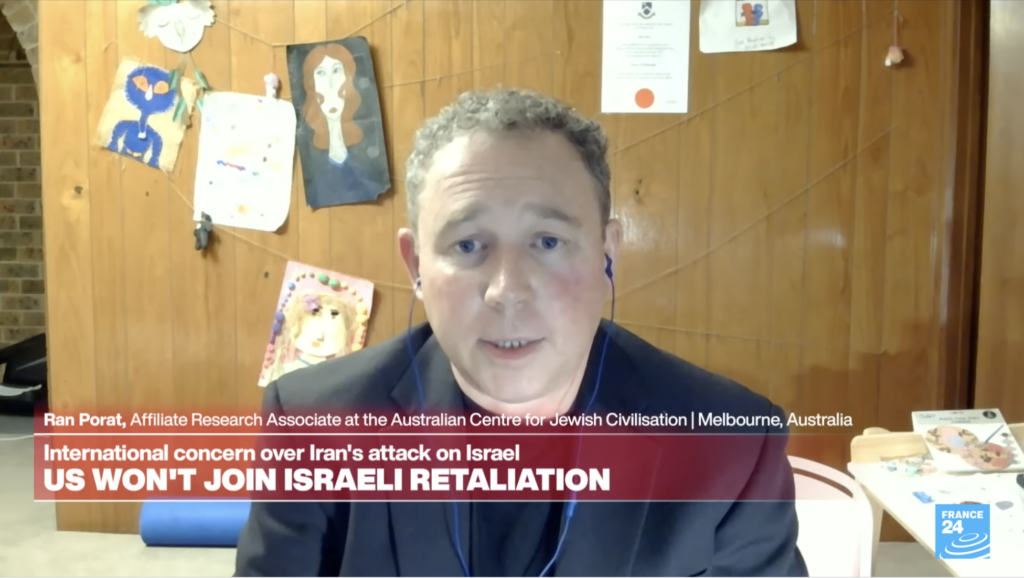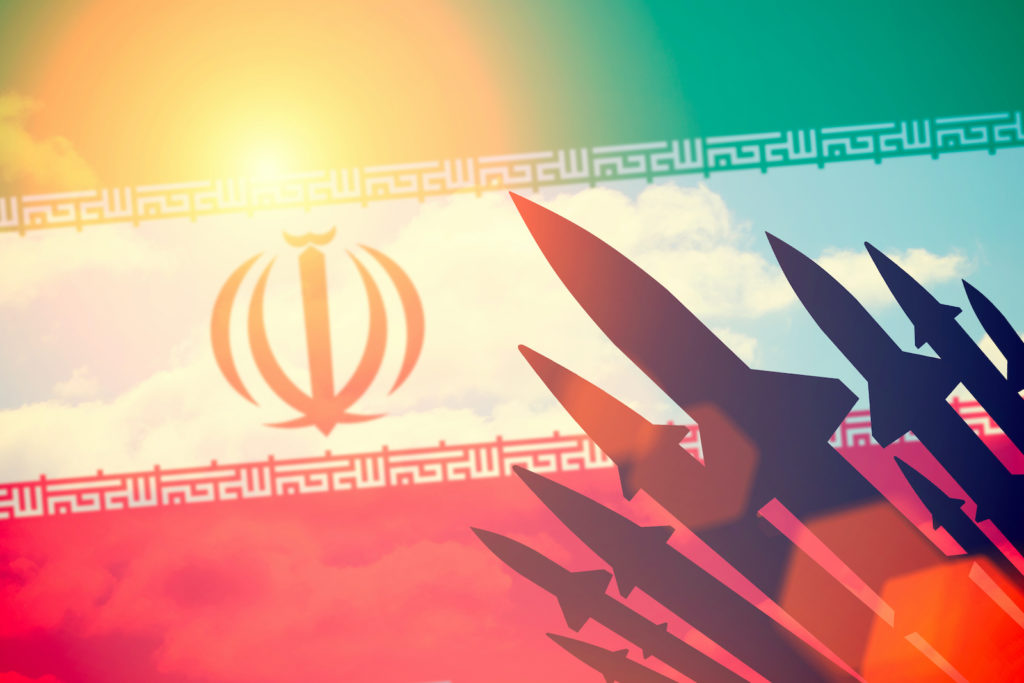UPDATES
Hamas courts Egypt’s Morsi, weighs Gazan independence
Jul 31, 2012 | Ahron Shapiro

Hamas officials, who had responded with elation over the election of the Muslim Brotherhood candidate Muhammad Morsi to Egypt’s presidency in late June, have come calling in Cairo twice over the past week, seeking to collect on Morsi’s campaign promises to open Gaza’s border to more trade and easier freedom of movement.
On July 19, Hamas’ leader Khaled Mashaal met with Morsi in Cairo. He was followed exactly one week later by Ismail Haniyeh, who heads Hamas’ operations in Gaza, where the group has been ruling unopposed since booting out Palestinian Authority officials in a bloody takeover in 2007.
According to news accounts, the Hamas officials did not leave empty-handed.
Hamas spokesman Mahmoud Zahar told the Palestinian news agency Ma’an that Egypt agreed to link Gaza to Egypt’s electricity grid and natural gas pipeline. Zahar also said that he expected Egypt to lift the travel restrictions on Palestinians leaving Gaza for Egypt by the end of the year.
Some reports suggested the easing of travel restrictions may already be underway (See here and here.)
Meanwhile, on July 22, the London-based Arab daily Al-Hayat reported that Hamas was considering declaring Gaza “liberated Palestinian territory”, which would allow it the freedom and autonomy to more fully exploit Gaza’s closer ties to Egypt and end commercial ties with Israel.
This prospect would be especially lucrative for Hamas, as it would effectively remove the thorn of economic sanctions from its side, which has been a major pressure point to force Hamas to allow Gaza to be reunited politically with the West Bank under the banner of the PA.
Conversely, such a move would be anathema to the Palestinian Authority, which understands it needs to achieve unity in order to maximise its access to international aid (especially in light of the success Hamas in Gaza has had in raising funds (independently) from regional donors).
In addition, Hamas’ move would make it harder for the PLO and the PA to claim the right to be the sole representative for the Palestinians at the UN and the negotiating table.
As reported by Bloomberg this week:
Under a U.S.-backed agreement, Israel, Gaza and the West Bank are part of a single customs union. That means there can’t be unilateral action on matters affecting trade, said Azam Al Ahmed, one of Palestinian Authority President Mahmoud Abbas’s negotiators in the unity talks with Hamas.
“Hamas cannot have reconciliation and at the same time control the borders,” Al Ahmed said in an interview. “They just cannot draw a map for the new Egyptian leadership and tell them what to do.”
Hamas, however, dismissed the Al Hayat report as a “fabrication” aimed at portraying the group as seeking to divide the Palestinian cause. “There will be no Palestinian state in Gaza and no Palestinian state without Gaza,” Dr. Salah Al-Bardawil reportedly told Quds Press.
In his blog on the Council for Foreign Relations website, Elliott Abrams wrote that for Gaza, closer economic and resource ties with Egypt will lead to a deeper estrangement from the West Bank, even in the absence of any declaration.
“An opening of the border and a reliance on Egypt for energy will cut ties between Gaza and Israel and closely connect Gaza to Egypt while the West Bank faces Jordan. In the short run the impact may be small, but over the years it seems likely that Gaza and the West Bank will grow further and further apart.”
Meanwhile, at The American Interest website, Walter Russell Mead has blogged how, under the right circumstances, closer Gaza-Egyptian ties might serve Israel’s interests by transferring the responsibility of Gaza’s humanitarian situation to Egypt in the eyes of the international community.
Solidarity between the Muslim Brotherhood and Hamas just might play into Israel’s hands. At that point, it would be looking at a de facto three state solution with two small (and mutually hostile) Palestinian statelets.
Gaza wouldn’t recognize Israel but it wouldn’t be able to fight it, and putting Gaza under Egyptian tutelage would also get Israel off the hook in terms of being criticized internationally for the blockade.
Nothing is risk free in the Middle East and nothing is perfect, but if I were an Israeli political leader, I just might be pleased to see Gaza and Cairo growing closer together.
At Haaretz, (subscription required) Zvi Bar’el wrote that Hamas may be pressured by Morsi to cease attacks against Israel as a concession to Egypt for warmer ties. This demand stems not out of concern for Israel, but pure self-interest. Egypt, which is facing an uncertain economic outlook, cannot afford to be dragged into the middle of a Gaza-Israel confrontation and craves stability at this time.
Wrote Bar’el:
“Egypt’s role may be about to change. Unlike Mubarak who did not hesitate to cooperate in imposing sanctions on Gaza, Morsi will not want to be in a position he is forced to maintain Mubarak’s policy regarding Gaza. For this purpose, he needs Hamas to make concession primarily in its armed operations, something which Mashaal must have understood.”
It should be noted that some Israeli commentators have been decidedly more pessimistic over the impact of closer Gaza-Egyptian relations as a result of the rise of Egypt’s Muslim Brotherhood. Among the troubling unknowns for these analysts would be Egypt’s future response to an Israeli military retaliation against Hamas for rocket attacks from Gaza.
Meanwhile, as Hamas makes a play for Egyptian support for increased trade, reliable and cheap energy supply and freedom of movement across the Rafah border, the group remains wholly dependent on foreign aid, something it is well aware cash-strapped Egypt cannot supply them.
Most significantly then, in face of growing Sunni/Shi’ite tensions in the region over the past year, Hamas appears to have been successful in ending its historic dependency on Shi’ite financial support via through the Syrian/Iranian axis, while at the same time shutting its headquarters in Damascus.
Furthermore, Hamas has deftly exchanged these patrons with regional Sunni suitors – particularly Qatar, Turkey and Tunisia.
On the Foreign Policy website, Jonathan Schanzer has blogged about the way Hamas is gaining strength in a rapidly changing Middle East which views the PA as an organ of US interests, in a region where the US is steadily losing influence.
Hamas, unlike the PA, has never needed Western handouts. Since its inception in 1987, the group has operated entirely on regional cash. And despite its recent fallout with Iran and Syria, its platform of resistance to Israel enjoys wide appeal in the new Sunni regional order.
Washington once had the clout to deter countries like Qatar, Turkey, and Egypt from backing a designated terrorist group. But after the great regional tectonic shifts of the past two years, U.S. consternation has become a secondary consideration for these new governments.
True, Hamas’ new donors could moderate its politics. This is certainly the line that Turkey and Qatar will take. But more likely, the increased cash flow to Hamas will herald a new wave of rejectionism and — given Hamas’s track record — possibly a new wave of violence in the Palestinian-Israeli conflict.
In recent days, Hamas has apparently launched a regional diplomatic initiative in the hope of capitalising upon the momentum of the increased legitimacy bestowed upon it by Egypt’s Morsi.
Most recently, Mashaal, who has been working out of Hamas’ new headquarters in Qatar, dropped into Ankara on July 24, where he was warmly welcomed at a Ramadan dinner by Turkish Prime Minister Recep Tayyip Erdoğan.
Ahron Shapiro
Tags: Egypt











